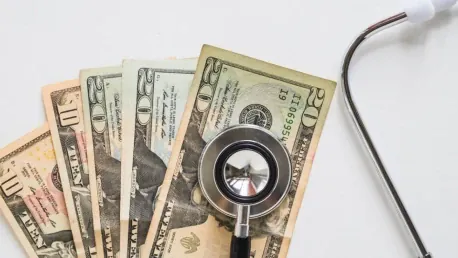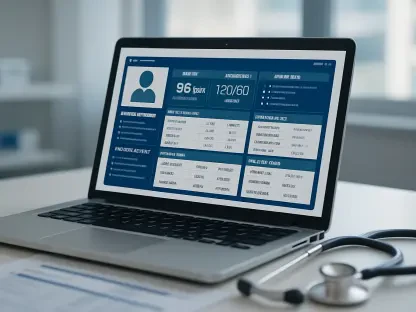The relationship between a person’s educational background, insurance status, and propensity to challenge medical bills is significant. A recent study published in the JAMA Health Forum has revealed how these factors create disparities in patient behavior, impacting financial relief and intensifying healthcare inequities. This insightful exploration emphasizes the socio-economic dynamics at play and sheds light on the broader implications of these findings. By examining these variables, the study provides a comprehensive understanding of why some patients are more likely to contest their medical bills than others, highlighting the critical areas where intervention is necessary to bridge existing gaps.
The Role of Education in Advocacy
Education plays a critical role in patient behavior regarding medical bills. The study shows a stark contrast in the likelihood of disputing medical charges based on educational attainment. Those without a high school diploma are far less likely to engage with billing offices compared to those who have pursued higher education. Specifically, individuals without a high school education had only about a 20% likelihood of challenging bills, whereas those with some college education showed more than a 60% propensity to do so. This discrepancy illustrates how educational background can significantly influence a person’s ability to navigate the complexities of the healthcare billing system.
Higher education not only provides individuals with the knowledge but also the confidence required to navigate the often complex bureaucracy of medical billing. This is due in part to better financial literacy, which is typically associated with higher educational levels. Understanding medical bills and the channels available for addressing disputes can be quite detailed, a competence often developed through higher educational attainment. The study suggests that individuals with more education are better equipped to decipher complicated billing statements and more comfortable engaging in discussions with billing offices to correct errors or negotiate charges.
Moreover, the education disparity highlights broader systemic issues within healthcare communication and accessibility. Those with limited education may lack the necessary resources or knowledge to effectively argue their case, leading to higher rates of medical debt. Policymakers and healthcare providers must recognize the role of educational outreach in empowering patients to advocate for themselves. Methods such as workshops, informational pamphlets, and improved patient support services could help level the playing field, giving those with less education the tools they need to dispute inaccuracies and manage their medical expenses better.
Impact of Health Insurance Coverage
Insurance status is another significant factor influencing patient behavior towards medical bills. People with private insurance exhibit a substantially higher likelihood of disputing bills. With a 68% likelihood of questioning charges, privately insured patients proactively engage with billing offices. In stark contrast, uninsured patients show only about a 33% likelihood, and those on Medicare demonstrate around a 30% probability of contesting bills. These statistics underscore how the presence of insurance can embolden individuals to scrutinize their medical charges more closely.
Insurance provides a safety net that affords individuals greater leverage and support in dealing with billing inaccuracies or high costs. While having insurance does not entirely eliminate the struggle with medical bills, it does provide a platform for more confident and effective advocacy. This discrepancy highlights the role of insurance as a crucial factor in enabling patients to challenge exorbitant medical expenses. When patients believe they have the backing of their insurance providers, they are more likely to confront and dispute charges that seem unreasonable or erroneous.
Yet, having insurance doesn’t entirely shield individuals from high medical costs. Many insured individuals still struggle with bills, but their insurance appears to provide a platform for contesting charges more confidently. Despite the support that insurance can provide, the study reveals that many privately insured patients still face significant medical bills, underlining that insurance alone is not a panacea for all financial woes related to healthcare. Efforts to make the insurance system more transparent and supportive could further help patients in navigating billing disputes effectively.
Financial Relief from Disputing Bills
Challenging medical bills can lead to significant financial benefits. The study reveals that around 26% of those who reached out to billing offices experienced corrections to their bills. Additionally, 18% of patients gained a clearer understanding of their charges, and 15% saw a reduction in prices. These outcomes underscore the value of questioning medical bills, although nearly 25% reported no change after disputing their charges, indicating that advocacy does not always lead to financial relief. Nevertheless, the potential for corrected charges or price reductions emphasizes the importance of patients advocating for themselves when faced with medical bills they cannot afford.
Despite this, the overall trend suggests that meaningful financial relief can often be secured through patient advocacy. This emphasizes the importance of outreach and support for patients, particularly those less inclined to dispute their bills due to educational or insurance-related barriers. Promoting awareness about the potential benefits of bill disputes could help ease the financial burden on many individuals. Healthcare providers and policymakers might consider implementing programs that encourage patients to review their bills and offer guidance on how to contest charges effectively.
Moreover, the variability in outcomes for those challenging their bills points to an inconsistency in how billing disputes are handled across different medical providers and institutions. Standardizing procedures or regulations for medical billing disputes could help ensure that more patients receive fair treatment and financial relief when they contest erroneous or inflated charges. Creating a more predictable and fair system for addressing billing disputes could significantly reduce the financial stress on patients, particularly those who are less educated or uninsured.
Healthcare Affordability and Persisting Challenges
The study situates itself within the broader context of ongoing challenges in healthcare affordability. Reports, such as one from the Kaiser Family Foundation (KFF), indicate that about half of adults find it difficult to afford medical costs, with a significant portion delaying or foregoing care due to financial constraints. These statistics provide a sobering context to the findings, demonstrating the pervasive and systemic issues of healthcare affordability in the U.S. The difficulty in affording healthcare fuels the necessity for bill disputes among patients, underpinning the urgency for effective solutions to this widespread problem.
Despite insurance or education, the high cost of medical care continues to push many individuals into financial hardship, highlighting the urgent need for systemic reforms. Addressing these challenges requires multi-faceted approaches, including policy interventions and increased patient support systems. The study underscores that simply having insurance or a higher education level does not entirely insulate individuals from the harsh realities of medical costs. Even those who are well-equipped to dispute bills may still face significant financial strain due to the sheer expense of healthcare services.
To better address these affordability challenges, reforms must aim to reduce the overall cost of healthcare while also improving access to financial assistance and advocacy resources. This could involve expanding insurance coverage options, implementing cost controls on medical services, and enhancing public awareness about available support systems. Such comprehensive approaches are necessary to mitigate the financial burdens faced by patients, particularly those most vulnerable due to lower educational attainment or lack of insurance coverage.
Regulatory and Policy Interventions
The connection between a person’s education level, their insurance status, and their likelihood of disputing medical bills is notable. According to a recent study published in the JAMA Health Forum, these elements contribute to disparities in patient behavior, affecting financial outcomes and exacerbating healthcare inequalities. This comprehensive study delves into the socio-economic factors at play, shedding light on the wider implications of these findings. By exploring these variables, the research offers an in-depth understanding of why certain patients are more inclined to contest their medical expenses compared to others. This underscores the need for targeted interventions to address and potentially reduce these disparities. It highlights how education and insurance can significantly influence a patient’s confidence and ability to navigate the often complex medical billing landscape. With these insights, it’s clear that addressing these gaps could lead to more equitable healthcare access and financial relief, thereby reducing the overall burden on vulnerable populations.









